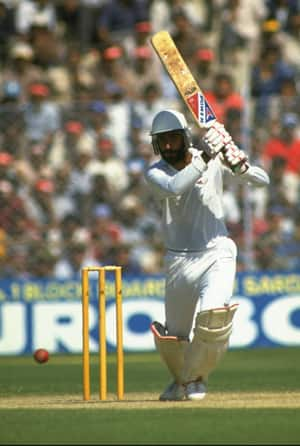
Cricket Country Staff
Editorial team of CricketCountry.
Former Indian opener Navjot Singh Sidhu walked out of India's 1996 cricket tour of England because he thought his captain Mohammed Azharuddin was constantly abusing him, a new book by former BCCI secretary Jaywant Lele claims.
Written by Cricket Country Staff
Published: Oct 25, 2011, 06:20 PM (IST)
Edited: Oct 25, 2011, 06:20 PM (IST)


The exact reasons for Navjot Singh Sidhu’s walk-out from England tour in 1996 have never been spelt out so far by the persons in the middle of this unsavoury drama or by BCCI © Getty Images
Mumbai: Oct 25, 2011
Former Indian opener Navjot Singh Sidhu walked out of India’s 1996 cricket tour of England because he thought his captain Mohammed Azharuddin was constantly abusing him, a new book by former BCCI secretary Jaywant Lele claims.
The tour is remembered for the infamous walk-out by opener Sidhu, citing differences with his captain, but the exact reasons have never been spelt out by the persons in the middle of this unsavoury drama or by BCCI.
Lele has now revealed in his autobiography “I was There – Memoirs of a Cricket Administrator” that Sidhu could not stomach the constant bad mouthing of Azharuddin and abandoned the tour in a huff without being aware that the swear words used by the then skipper were commonplace in his home town Hyderabad and no disrespect was meant.
Finally it was Mohinder Amarnath, a member of the panel that probed the matter, who managed to coax him to reveal the real reason for his tour walkout, Lele said.
Lele has recalled that the Board had conducted an enquiry into the incident and nothing came out in the first meeting of the special committee in Mumbai where Sidhu refused to reveal the reason.
The panel comprised then BCCI chief Raj Singh Dungarpur, I S Bindra, former India captain Sunil Gavaskar with Lele as its convenor.
“Each committee member tried his best to extract the reason. Sidhu was firm that it was his mistake to return in this manner and he was prepared to face the consequences,” Lele has written in his book. (PTI)
This website uses cookies so that we can provide you with the best user experience possible. Cookie information is stored in your browser and performs functions such as recognising you when you return to our website and helping our team to understand which sections of the website you find most interesting and useful.
Strictly Necessary Cookie should be enabled at all times so that we can save your preferences for cookie settings.
If you disable this cookie, we will not be able to save your preferences. This means that every time you visit this website you will need to enable or disable cookies again.
